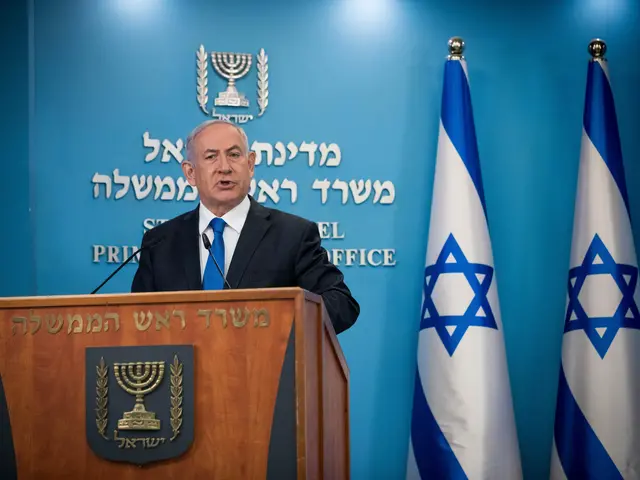Yossi Cohen, chief of Israel's Mossad intelligence agency, landed in the capital of the United Arab Emirates (UAE) on Monday, days after a historic agreement between the two countries established diplomatic relations.
It was the first public visit by such a senior Israeli official in the Gulf state. Cohen is believed to have been instrumental in the negotiations leading up to the agreement, under the auspices of the Trump administration.
Israeli media reported a larger delegation is expected in Abu Dhabi later this week in order to formalize the agreement.
The agreement will be the third such accord the Jewish state has with countries in the region. Decades after peace with Egypt and Jordan, there was a lengthy stalemate in which there was no progress in peace and normalization between Israel and the Arab world.
Many believe that before Israel establishes ties with other countries, it must solve its conflict with the Palestinians. And for decades, the Palestinians relied on this support in their fight against Israel.
The very public reveal of the pending agreement between the UAE and Israel indicated a shift in the traditional position.
"This is a move that demonstrates there is a country that is willing to break that equation...but it does not mean this equation is not correct anymore," said Nimrod Goren, head of the Israeli Institute for Regional Foreign Policies, "Progress with the Palestinians would make such agreements possible with many other countries."
The last time Palestinian and Israeli negotiators sat together was in 2014.
This stalemate together with major regional shifts that have occurred in recent years have led to a thawing in the relations between Israel and several countries in the area. Covert relations with the UAE and other countries have reportedly been going on for several years, especially cooperating against the mutual adversary, Iran.
The Palestinian issue has been sidelined as both sides see a bigger threat and larger interests.
"A lot of countries in the region feel threatened by Iran and do not want to wait for the Palestinians to respond to peace proposals in order to promote cooperation with Israel," said Emmanuel Navon, a professor of international relations at Tel Aviv University.
The Palestinians have ruled out cooperation with the Trump initiative to bring peace between them and the Israelis. Considered controversial by many, the "Deal of the Century" also includes an Israeli annexation of West Bank territories which Palestinians see as a major chunk of their future state. The move was supposed to have happened last month.
The agreement between the UAE and Israel was largely enabled by Israel tabling the annexation. Although Israeli Prime Minister Benjamin Netanyahu said annexation will happen at a later time, it is realistic to expect it will not happen at all.
"The Americans told us that they wanted to expand the framework of peace, and that is our highest priority right now: expanding the circle of peace," Netanyahu said on Monday in a first-ever interview to Sky News Arabia, an Abu-Dhabi based TV news channel.
There have been reports that other countries, such as Bahrain and Sudan, may follow suit and forge public relations with the Jewish state. Earlier in the week, Israeli Foreign Minister Gabi Ashkenazi spoke with his Omani counterpart Yosef bin Alawi bin Abdullah. According to a statement released by the Israeli Foreign Ministry, the two discussed "the need to strengthen relations between Israel and Oman....and advance the process of normalization in the Middle East."
"There might be an agreement with another Gulf state, but we will not see something wider," Navon told Xinhua.
While security cooperation is believed to have been going on for many years, the agreement will bring to the forefront cooperation in other matters.
"This will enable mutual investments and cooperation. It is definitely good for both economies," Navon added.
The importance of the agreement cannot be underestimated. It brings a wind of change to a region that is accustomed to talking in terms of conflict and confrontation.
"There is definitely a change of the regional map and this is not trivial," Goren told Xinhua.
(ASIA PACIFIC DAILY)
 简体中文
简体中文



